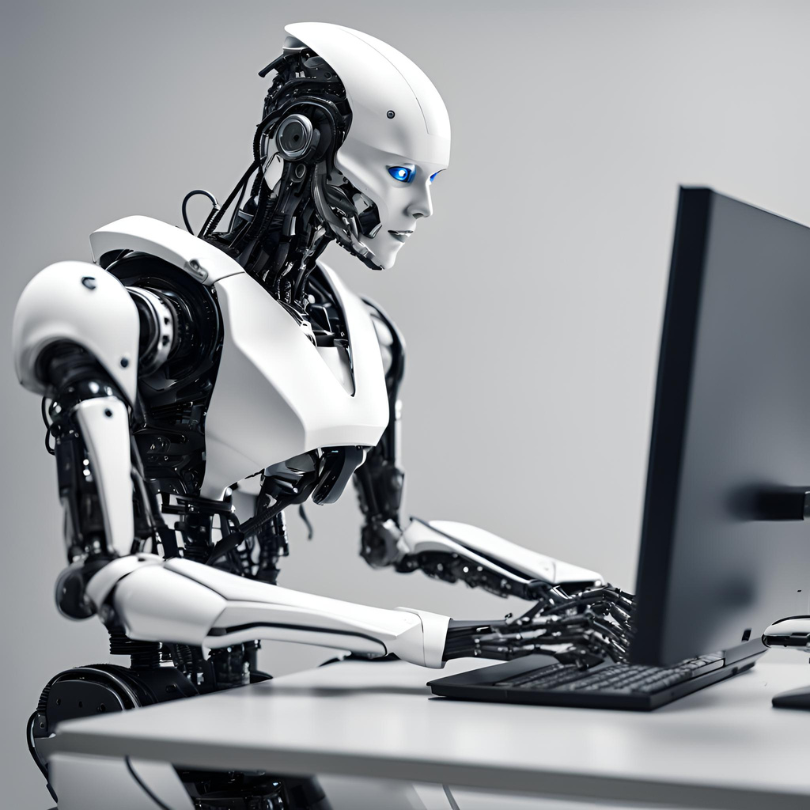Artificial Intelligence (AI) has been revolutionizing various industries, and coding is no exception. The advent of AI-powered tools and platforms capable of automating significant portions of the coding process is reshaping the landscape of software development. While this brings numerous benefits in terms of efficiency and innovation, it also raises important questions about the future of the coder workforce.
The Emergence of AI in Coding
AI’s ability to automate coding stems from its proficiency in understanding and generating natural language, pattern recognition, and predictive analytics. Tools like GitHub’s Copilot, OpenAI’s Codex, and various other AI-driven code generators can assist developers by suggesting code snippets, debugging, and even writing entire functions or modules.
These tools work by learning from vast amounts of code available in public repositories, enabling them to understand the context of a developer’s work and provide relevant suggestions. They can significantly speed up the development process, reduce human error, and lower the barrier to entry for new programmers by providing immediate assistance and learning opportunities.
Benefits of AI-Powered Coding Automation
- Increased Efficiency: AI can handle repetitive and time-consuming tasks, allowing developers to focus on more complex and creative aspects of their projects. This leads to faster development cycles and quicker time-to-market for software products.
- Enhanced Code Quality: AI tools can identify and suggest fixes for potential bugs and vulnerabilities, leading to more robust and secure code. They can also enforce coding standards and best practices, ensuring consistency across large codebases.
- Accessibility: For novice programmers, AI can act as a tutor, providing guidance and instant feedback. This can make coding more accessible to a broader audience, encouraging more people to learn and enter the field.
- Innovation: By automating mundane tasks, developers can spend more time on innovation and problem-solving, potentially leading to more groundbreaking software and technologies.

Impact on the Coder Workforce
While the benefits of AI in coding are substantial, its rise also brings challenges and uncertainties for the coder workforce. Here are some key considerations:
- Job Displacement: As AI takes over routine coding tasks, there is a legitimate concern about job displacement, particularly for entry-level and junior developers. Companies may require fewer human coders to handle the same amount of work, potentially leading to layoffs or reduced hiring.
- Skill Shift: The skills required for developers are likely to evolve. Rather than focusing solely on coding, developers will need to adapt by acquiring skills in AI tool management, code review, system design, and integrating AI-generated code. Continuous learning and adaptability will become crucial.
- Economic Inequality: The automation of coding could exacerbate economic inequalities if only a small segment of highly skilled developers who can work with AI tools secure the most lucrative positions, while others struggle to find employment.
- Ethical and Security Concerns: As AI-generated code becomes more prevalent, developers will need to ensure that these tools do not introduce vulnerabilities or biases. The responsibility for ethical AI use in coding will rest on the shoulders of both developers and organizations.
- Human Creativity and Judgment: Despite AI’s capabilities, human creativity, intuition, and judgment remain irreplaceable. Complex problem-solving, understanding user needs, and creating innovative solutions will always require a human touch. The role of the developer might shift from writing code to overseeing AI-generated code and making higher-level decisions.
Preparing for the Future
To navigate the changes brought by AI in coding, both individuals and organizations need to take proactive steps:
- Education and Training: Continuous education and upskilling will be essential for developers to stay relevant. Learning how to leverage AI tools effectively and understanding their limitations will be crucial.
- Embracing Collaboration: Organizations should foster a collaborative environment where human developers and AI tools complement each other. Encouraging a culture of innovation and continuous improvement can help maximize the benefits of AI.
- Policy and Ethics: Industry leaders and policymakers must work together to create guidelines and standards for the ethical use of AI in coding. Addressing issues like bias, security, and job displacement is critical for sustainable growth.
- Focus on Soft Skills: Soft skills such as problem-solving, communication, and critical thinking will become increasingly valuable. Developers should focus on honing these skills to adapt to the changing landscape.
Conclusion
AI is transforming the coding industry, offering both exciting opportunities and significant challenges. While automation promises to enhance efficiency and innovation, it also necessitates a reevaluation of the coder workforce’s role and skills. By embracing continuous learning, ethical practices, and a collaborative approach, developers and organizations can navigate this transition successfully, ensuring that the benefits of AI are realized while mitigating its potential downsides. The future of coding will likely be a synergistic blend of human creativity and AI-powered efficiency, leading to unprecedented advancements in technology.








Leave a comment